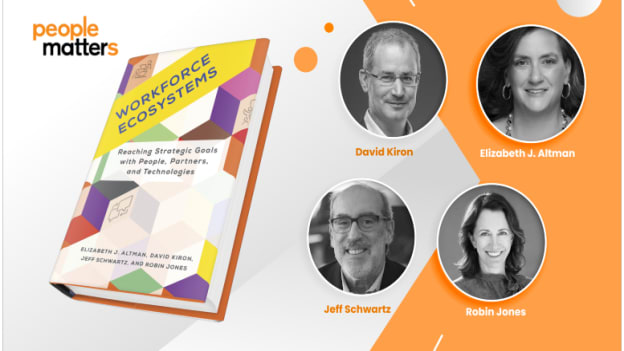Workforce Ecosystems: Thriving Beyond Boundaries

In a world where the boundaries of work are constantly evolving, traditional notions of the workforce are being changed, giving rise to a new paradigm of collaboration. In their book, Workforce Ecosystems - Reaching Strategic Goals with People, Partners, and Technologies, Elizabeth J. Altman, David Kiron, Jeff Schwartz, and Robin Jones explore the transcending confines of conventional workforce management. It explores new-age workforce ecosystems, where organisations harness the power of diverse contributors, emerging technologies, and strategic partnerships to achieve their loftiest ambitions.
The authors emphasise the role of the evolving nature of the workforce, encompassing diverse individuals such as contractors, gig workers, and complementors. They argue that this transformation calls for a holistic approach that goes beyond traditional organisational boundaries. This resonates with executives who view their workforces as intricate networks of interdependent actors working towards individual and collective goals.
The book provides a comprehensive exploration of the factors driving the rise of workforce ecosystems, shedding light on the reduction in information costs that has enabled individuals from around the world to contribute digitally. This transformative shift has paved the way for the development of production models, facilitated remote work opportunities, and allowed for flexible arrangements. The book illustrates how these trends, along with evolving worker attitudes, have fueled the growth and significance of workforce ecosystems.
Showcasing real-world examples from Novartis, Applause, and Walmart, the book demonstrates how organisations are increasingly relying on an extended workforce, recognising the value of specialised skills and enhanced flexibility. It also underscores the need for organisations to adapt their management practices to effectively harness the potential of the workforce model.
An integral aspect of workforce ecosystem management, as covered in the book, is orchestration. The authors convincingly argue that managing a workforce ecosystem is a complex undertaking requiring intentional coordination and collaboration among all stakeholders, including external ones. When asked about fostering a culture of ethics and integrity within workforce ecosystems, Jeff highlighted the importance of being intentional orchestrators. “Companies with clear strategies, governance, and practices for managing internal and external workers are six times more likely to integrate external workers into their organisational culture,” added Jeff.
Acknowledging the need for a departure from traditional hierarchical structures, the authors underscore the pivotal roles of different categories of leaders, including senior leaders and business unit leaders. They address the necessary adjustments in behaviours and mindsets required, such as relinquishing direct control over employees and embracing new paradigms.
When asked about the impact of AI and automation on human workers and technology in workforce ecosystems, Jeff noted that the dynamics between them will have similar effects. This requires redesigning work and jobs to integrate AI. As companies expand their workforce with freelancers, contractors, crowds, and service providers, these individuals are augmented with AI and other technologies.
Platforms like Upwork and Freelancer have revolutionised the way organisations access external talent. However, the authors caution that the haphazard utilisation of these platforms can lead to inefficiencies, and they highlight the need for large organisations to adopt a centralised and coordinated approach to leverage digital labour platforms.
The authors touched upon the rethinking of career management within workforce ecosystems. Traditional notions of linear career paths are being replaced by workers curating their own careers based on skills and interests. They present skills-based marketplaces and talent-sharing programmes that empower individuals to explore diverse opportunities both within and across organisations. This perspective on career management aligns with the changing aspirations of today's workforce.
When asked about any surprising insight that emerged from the research, “Perhaps one of the surprising insights on the impact of workforce ecosystems on organisational success is the progress and sophistication of companies that are “intentional orchestrators. Companies including Novartis, Metlife, and Unilever are examples,” said Jeff.
Workforce Ecosystems is a thought-provoking resource for leaders and practitioners seeking to navigate the complexities of managing workforce ecosystems. The book's exploration of ecosystem dynamics, coupled with its analysis of technology, leadership, culture, and career management, can help practitioners embrace this paradigm shift successfully.
















